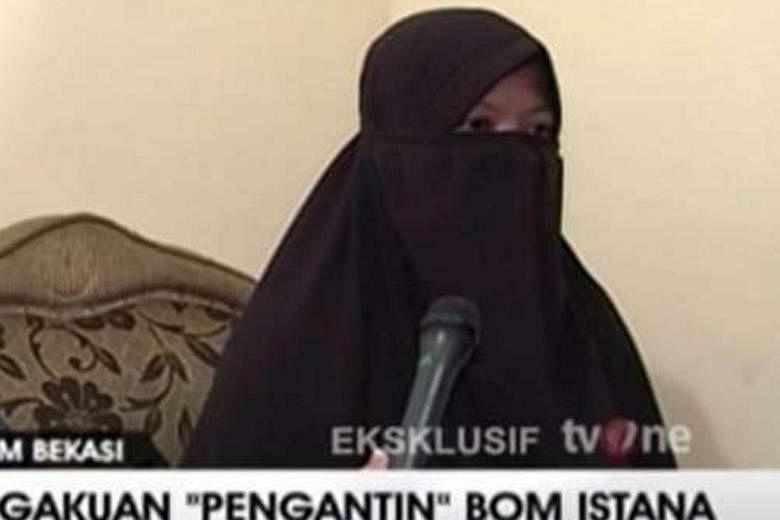Two Indonesian women - Dian Yulia Novi and Ika Puspitasari - were arrested last December, after police foiled a plot to bomb the Istana Merdeka presidential palace in Jakarta.
Both had worked as domestic helpers overseas - Dian in Singapore and Taiwan, and Ika in Hong Kong. Ika was allegedly planning to mount a suicide bombing in Bali on New Year's Eve last year.
The arrest of the two former migrant workers for attempted suicide bombings underscores the vulnerability of such women to extremist recruitment, said the Institute for Policy Analysis of Conflict (Ipac) in a new study released yesterday.
According to researchers from the Jakarta-based think-tank, dozens of Indonesian maids working in East Asia have become involved in a variety of pro-ISIS (Islamic State in Iraq and Syria) activities, ranging from funding tickets to Syria to marrying fighters online.
These female radicals were identified through social media, official reports and direct interviews.
Ipac researchers said a tiny extremist cell of about 50 such workers has developed from the more than 153,000-strong Indonesian community in Hong Kong. Of these women, 43 have worked or are working in Hong Kong, three are in Taiwan, and four in Singapore.
It said that in June this year, four women had joined ISIS; around 16 had returned to Indonesia and mostly married militants; and eight were deported from their host countries or from Turkey while trying to cross over to Syria.
Most of these women experienced a life-changing transformation in Hong Kong - typically after getting fired by their employers, being involved in messy love affairs or facing family-related problems - that prompted them to turn to religion. But they were then drawn into radical online forums, or even began attending radical lectures.
"None (was) ever interested in supporting attacks in (her) host (country); they wanted rather to support the anti-Assad fight in Syria or the pro-ISIS violence at home," the report said.
Ipac analyst Nava Nuraniyah said the Indonesian government must work with overseas labour recruitment agencies and civil society organisations to ensure that the country's migrant workers, particularly women, are not drawn into extremist cells.
The Indonesian dakwah (religious outreach) groups in Hong Kong can be used as a preventive measure, as their members may be the first to know if a friend is getting drawn into extremist groups, the report said, adding that there should be a secure and confidential reporting channel to the consulate, which must have trained counsellors.
"In the end, the best partner for the Indonesian and Hong Kong governments in preventing radicalisation of migrant workers is the broader Muslim community itself," said Ms Nava.

